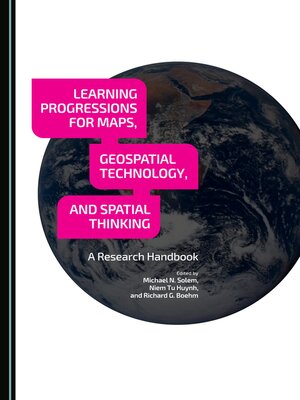Learning Progressions for Maps, Geospatial Technology, and Spatial Thinking
ebook ∣ A Research Handbook
By Niem Tu Huynh

Sign up to save your library
With an OverDrive account, you can save your favorite libraries for at-a-glance information about availability. Find out more about OverDrive accounts.
Find this title in Libby, the library reading app by OverDrive.



Search for a digital library with this title
Title found at these libraries:
| Library Name | Distance |
|---|---|
| Loading... |
As an approach to educational research, learning progressions offer considerable potential for investigating how children develop an understanding of geographic concepts and practices across grade bands and in relation to national geography standards. With funding support from the US National Science Foundation, this book was created as a resource for researching learning progressions for maps, geospatial technology and spatial thinking. Featuring contributions from experts in geography, math and science education, the book's chapters offer advice, examples and guidance on the following topics: • Definitions of learning progressions with examples from geography, math and science education;• Discussion of relevant research on spatial cognition, map learning and GIS education;• Approaches to constructing samples and assessment items for quantitative studies;• Demonstration of how to perform validity tests of research instruments;• Demonstration and practice of qualitative methods, including clinical interviews;• How to interpret quantitative and qualitative data;• Common errors, pitfalls and obstacles in learning progressions research;• Strategies for working with teachers and students in K-12 classrooms.The interdisciplinary nature of the book will appeal to graduate students, higher education faculty and school teachers in several subject areas.







